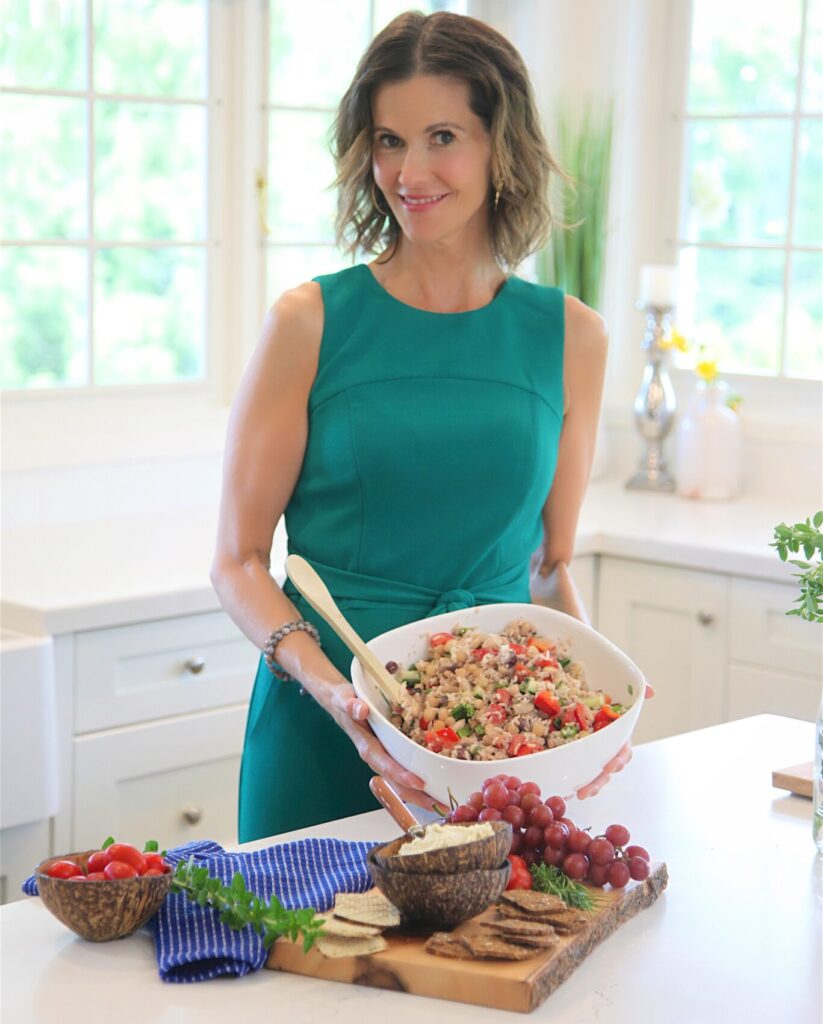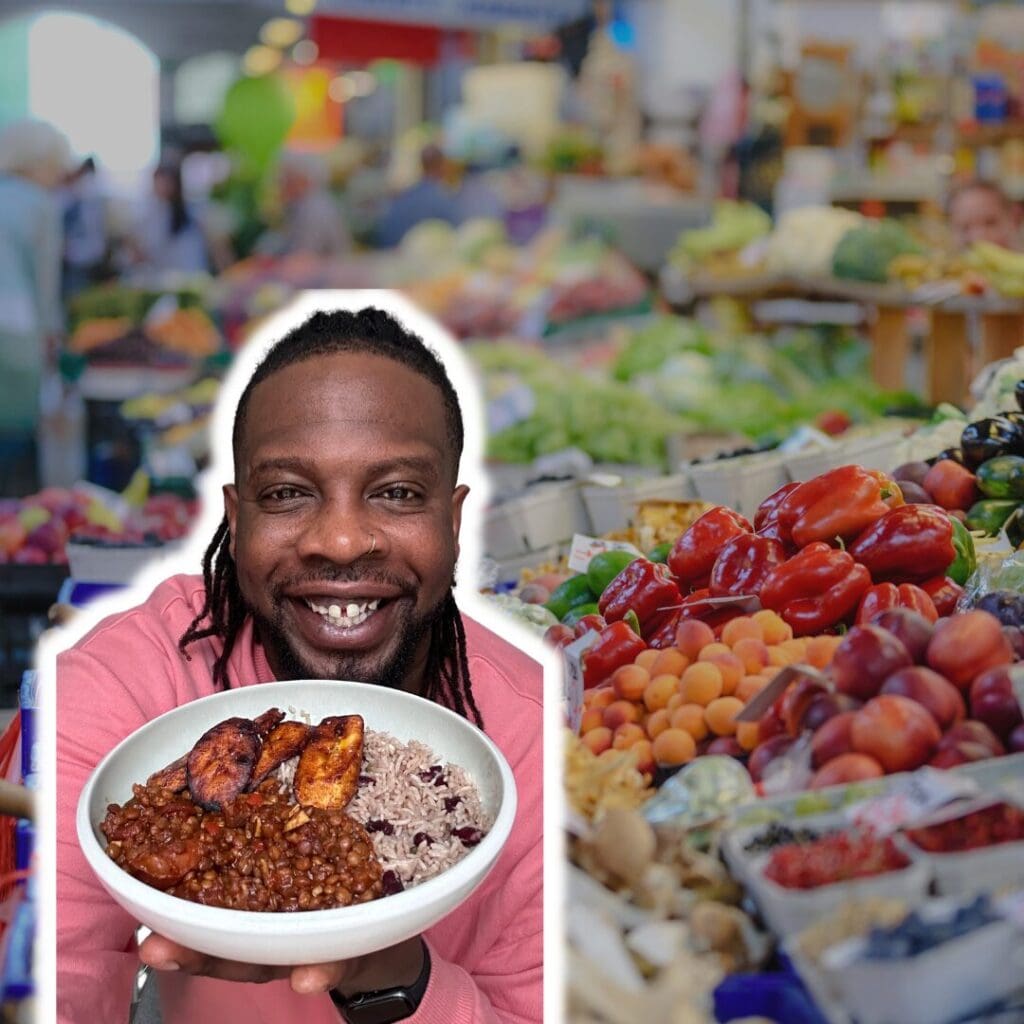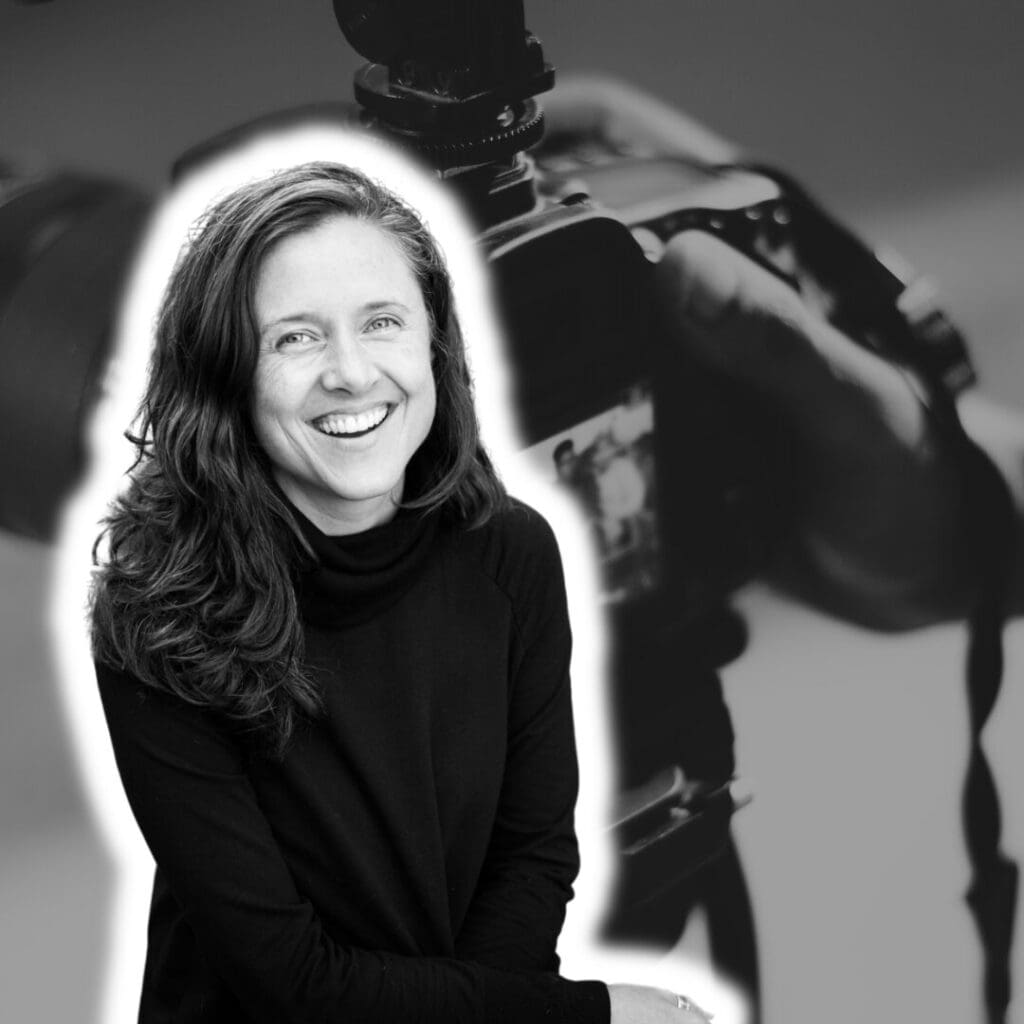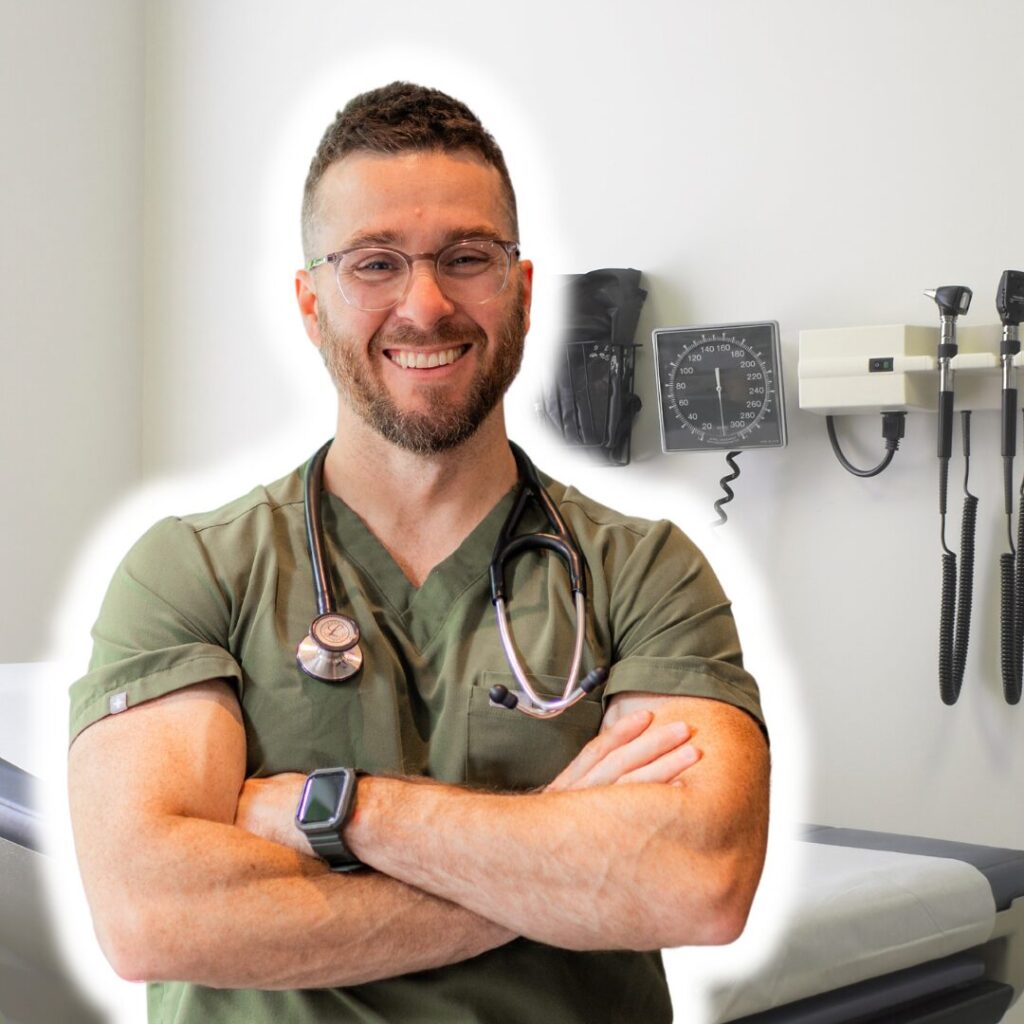Chat with a Vegan: Dreena Burton, cookbook author and fascial stretch instructor

As part of our “Chat with a Vegan” series, Emma Levez Larocque sat down and spoke with Dreena Burton. Dreena is a plant-based cookbook author and a yoga and fascial stretch instructor based in Vancouver, British Columbia. We hope you find her experience and advice helpful no matter where you are on your own plant-based journey.
You can follow Dreena across multiple platforms:
If you’re interested in learning more after reading this blog post, you can find great resources on the Vancouver Humane Society’s PlantUniversity Platform and subscribe to get free plant-based recipes and be notified when the next interview is posted.
How did your vegan journey begin?
I kind of just went through this period in my teenage years where I noticed I wasn’t feeling so good, and that’s when I really started to pay attention to what I was eating.
I was constipated a lot. My digestion didn’t feel good. I was starting to have joint pain problems in my early twenties and I came across a couple of books that opened my eyes. One was Diet for a New America by John Robbins and the other was Fit For Life. Both really opened my eyes to dairy, big time to dairy, and also to not eating meat, and phasing it out. So that’s how I moved into it, was phasing it out. There’s that magic time of about, I think a month, they say to really let the body change and adapt and your palate to open. And that happened for me.
It’s been over 25 years, but I can’t imagine having lived any other way. It was so obscure at the time. And I think living out West gave me a little more opportunity to feel that was accessible because there was more interest in it in the area that we live.
How did you get started writing cookbooks?
I was led into my cookbooks, I’d say largely, from moving out West. And at the time, my husband’s father had had a heart attack and his cardiologist in St. John’s recommended a plant-based diet, which was really unheard of.
I had been working in a marketing position in St. John’s and my heart was not in it at all. I was just like, I cannot see myself doing this for the rest of my life. People said to me, you know, when you talk about food, you light up. I was like, of course I do. Loved it since I was a kid. I knew my parents-in-law were needing help with recipes, and that’s when I just started to sketch things out myself. I wanted to create recipes that I felt like they could use, and they were healthy, whole foods, very low in fat for what health conditions they were going through.
That was the start of it for me. And then I kind of grew with it with every life change in a way, because the next book involves after having our first daughter and trying to incorporate more foods to feed her and those concepts.
How did you start teaching yoga and fascia classes?
I felt great in my body through food, through diet. That removed a lot of pain and discomfort in my body up until about my 40s. And then things started to change where I was feeling like my joints were hurting and my body just the things I love to do like cooking, for instance, even caused me pain. I thought maybe I’m just missing something like alignment, how to align your body.
So I took yoga and I wasn’t sure if I was going to teach. To me, it was just to learn, but something kind of pulled me into wanting to teach.
So, I just kind of kept on that journey in the background and I was teaching at a studio. But the joint stuff didn’t go away and it was irritating to me because I felt like I’m doing everything right.
And then I came across this work to change your fascia, which really has changed my life because I don’t have the pain anymore. When I talk about fascia work, this is working at the tissues on a deeper level from the inside out. It’s a movement practice, but it’s not yoga.
Everything that we’ve done in our life has shaped the quality and health of our connective tissue. And we want to keep it healthy because if it’s not, it’s dense and dry and not pliable as it should be. It restricts the movement of the limbs. So this is why you have pain. When you can free up the fascia, then the limbs move better. You feel better in your body. And so it’s a really simple formula where you move to create the change from the inside out. It’s the most interesting form of movement that I have.
After a couple of months, I noticed, wow, I can turn my head again. I was like, wow, my tissues feel really different and I’m feeling good in my body again.
So when I started to feel shifts in my body, I can’t explain it other than I felt a draw to it. Just like when I started writing recipes, I felt a draw to it and I’m feeling that with this work.
I’ve had classes that I’ve been running online and now I’m soon to launch a site called Fascia Flo and running zoom classes and video recordings for people to also take.
How do you think healthy veganism and movement are connected?
I feel they’re so interconnected. I feel like you really cannot live well with only one. So let’s say that, because eating a vegan diet, if you’re not really paying attention to the health properties of that vegan diet, if you’re relying a lot, a lot on, we all eat some processed food. If you rely a lot on processed food, then you’re not going to feel good for it.
But similarly, if you’re not moving your body, then you’re also not going to feel good for it. And some people move their bodies all the time and don’t really pay attention to healthy diet. And that, you know, can cause stagnation and issues later on. And also people eat super healthy, but don’t really pay attention to the movement.
We are animals, after all. Species all follow a certain way of eating and they all move. We’re not meant to be as sedentary as we are, and you know, we have to work, we have jobs, we have these things, but we also have to pay attention to what we need to do to balance that out when that is part of our life.
I think when you’re following a plant based diet, you tend to then pull in all these other elements of wellness along the way. If you stay with it, right over time, you want to learn more about this part of wellness. All these little things start to kind of come in and movement’s part of that to me.
What inspires you?
I feel like learning inspires me. I mean, that sounds kind of corny in a way, but I’ve never really idolized people. I’ve looked up to people like I, I would love to meet Dr. Campbell one day. And people who’ve, who’ve taken a different path. even though it was so challenging for them to do so, that’s very inspiring. But also just seeing, you know, people do the things they want to do despite their challenges.
That growth of a human that’s possible is what’s inspiring, and knowing that it doesn’t stop, you know, you remember being in your twenties thinking you know everything, and then you get to your thirties and you think you still know quite a bit. And then you get to your forties and you’re like, I don’t know, I think I’ve got tons to learn. And so you really can keep learning and it’s exciting to keep learning.
This interview from PlantUniversity’s “Chat with a Vegan” series was hosted by Emma Levez Larocque of Plant-based RHN and featured Dreena Burton.
More posts like this
Chat with Ebenezer Odeniyi, vegan advocate and online cook
I’m an online cook; here’s how I advocate for plant-based eating…
I’m a photojournalist; here’s how I advocate for animals using the power of imagery
I’m a photojournalist; here’s how I advocate for animals using the…
I’m a family doctor; here’s what I tell my patients about going plant-based
I’m a family doctor; here’s what I tell my patients about…
Chat with a vegan: Stephanie Redcross West, business coach and marketing strategist
Chat with a vegan: Stephanie Redcross West, business coach and marketing…
Chat with a vegan: Derek Simnett, nutritionist, YouTuber, and athlete
Chat with a Vegan: Derek Simnett, nutritionist, YouTuber, and athlete As…
Chat with a vegan: Pamela Fergusson, Registered Dietitian
Chat with a Vegan: Pamela Fergusson, Registered Dietitian As part of…






